I, like many seminarians, had to go through a process of intense self-reflection by taking every personality test under the sun; Enneagram, Disc, Strength’s Finder, Myers Briggs, and Conflict Styles were just a few of the tests required for me to take. One of the most revealing take-aways that I learned about myself was that when it comes to conflict, I avoid it. Actually, it might be more accurate to say that when the storm is raging, I batten down the hatches and hunker down.
And I’m not sure if you’ve noticed, but a storm has been raging. Of course, the church has had its share of storms, but I am referring to one very particular storm: racism.
It’s easier to deny that a storm is raging than it is to understand the storm, journey through it, and seek resolution.
Just a few weeks ago, Efrem Smith so boldly proclaimed to about 600 participants at the Missio Alliance #TrulyHuman Gathering that, “in order to live in the new humanity, we must first die to some things…we’ve got to get down to get up again with Christ…”
Over the last few years, the Spirit has taken me on a journey of dying, reconciliation, transformation, and new humanity.
My process of dying began 4 years ago in a Northern Seminary class:
“I don’t know, Tiffiney, I just don’t see it,” I said after Tiffiney, my African American classmate, brought up the subject of racism in America. I went on, “I just feel like racism is a thing of the past, I mean, we elected an African American president, after all.[1] I just feel like we’re beating a dead horse and keep bringing something up that doesn’t exist anymore.”
Tiffany’s demeanor changed as she noticeably shut down and slumped down in her chair.
The professor took a deep breath, sensing the tension in the room, “I think it’s time we take a break.”
That was the dumbest thing I have ever said,
ever,
because I was dead wrong.
On that day, I chose the easier path of living in my denial and hunkering down in the basement.[2] The wind was hollowing, the sirens were roaring, the waves were crashing; but I chose to close the shades and live in denial.
Friends, a fierce storm is raging. Here is the critical question amid the storm: Where is the white church? Sure, it’s easier to let politicians debate, and to pretend that the storm that rages exists solely in the media. It’s easier to go on with our lives and shake our heads in disgust over “those people burning their own communities.” It’s easier to say that “those people” are making a big fuss over nothing; “those conflicts were resolved long ago don’t you know!” It’s easier to say that the black American perspective is invalid and a figment of their imagination; “Why can’t they just get over it?!” It’s easier to get angry, defensive, and accuse “those people” of inventing stories and deny the reality of structural and systematic racism. It’s easier to be silent and look away; and, at times, our silence is deafening. It’s easier to batten down the hatches, ignore the raging storm, and live in denial.
It’s harder, however, to walk into the eye of the storm, sit down, and listen closely to the howling wind. It’s harder to affirm the voices of those who feel unheard –to listen to those who feel protesting is the only way that they might be heard. It’s harder to dig deep down and untangle this mess that we’ve created. It’s harder to listen without getting defensive. It’s harder to admit our own privilege and seek after restorative justice as though the very life of the church depended on it. It’s harder to fight for justice, equality, and to be an active agent of change, transformation, and love. It’s harder to advocate, speak up, and raise awareness with those in society who feel left out.
You see, I too was unaware of the invisible systemic issues that exist in America today, mainly white privilege. I was living in the basement.
Then I went through a section on Racial Reconciliation in my Theology class at Northern Seminary…and everything I ever believed about the non-existence of racism in America was blown into shreds in a matter of weeks. Suddenly, I became aware of the devastating historical implications of whiteness in America. I listened to painful stories from my African American classmates who have seen the impact of white privilege in America. I heard stories of racial profiling in the city of Chicago, stories of my classmates being reminded of their race on a daily basis, and stories of classmates who were often in fear of being harassed. For my whole life I had a “bootstrap philosophy,” I believed that if someone worked hard enough in the United States they could make it just like everyone else.
That day, as I listened to my classmates pour their hearts out, I could bear it no more. I opened the curtains and saw the dark clouds; I heard the thunder rumbling.
Tiffiney, who I had so rudely written off just two years before sat in the same classroom as I did.
I quickly raised my hand with tears rolling down my face, “Excuse me, could I just share something?” The entire class turned to see my distraught face. “Two years ago I so wrongly wrote Tiffiney off in the middle of class and told her that ‘I just didn’t see racism.’ Tiffiney, I need to ask for your forgiveness. I am sorry, I could not have been more wrong.”
I felt naked. I felt sick. I hated the words I had said just two years ago.
Tiffiney got up from her chair, walked across the room toward me, pulled me from my chair and just embraced me. Together we wept.
Some things died in me that day. But that is where my truly human journey of reconciliation began.
In his letter to the Romans, Paul observed a storm that was raging in the Roman church. Paul wrote to a community that was deeply divided by historical, racial, and political issues. In Paul’s letter, we get a glimpse of a man who was completely obsessed with unity and reconciliation within the body of Christ. It would have been the easier thing for Paul to simply close the shades and live in denial that the Roman church was experiencing some fierce tensions. But instead, Paul wrote passionately, beautifully, and theologically to make one all-encompassing point:
“This righteousness is given through faith in Jesus Christ to all who believe. There is no difference between Jew and Gentile.. “(Rom. 3:22 See also, Rom. 10:12, 11:11-32, 14:1-15:3)
I have often wondered what Paul’s letter to the North American church would look like in 2015.[3] I imagine Paul would not be hiding in the basement; rather, Paul would be living in the eye of the storm, calling the church to put to death it’s blatant denial of systematic-racism and privilege, and begin the truly human journey of reconciliation…at all cost.
When, oh when, will we get out of our basements and do the hard thing? When will we collectively run to the eye of the storm and begin the truly human journey of racial reconciliation? A storm is raging, friends; a storm is raging.
[Image: Kim Seng]
[1] Consider watching J Cameron Carter’s poignant talk (Q Ideas) on the “Postracial Blues” being the latest form of racism in America today instead of the overcoming of racism. (HT: Josiah Daniels) https://www.youtube.com/watch?v=5yxlSlbqOmQ
[2] Consider a brief video of Walter Brueggemann on the pastoral art of helping others overcome the culture of denial. https://www.youtube.com/watch?v=EIsWtLPV2zk
[3] I truly believe one of the most important books Christians should read on Paul’s vision for the church is A Fellowship of Differents by Scot McKnight. In his book, McKnight helps paint a picture of Paul’s passionate vision of what the Spirit-empowered church looks like: a fellowship of differents.
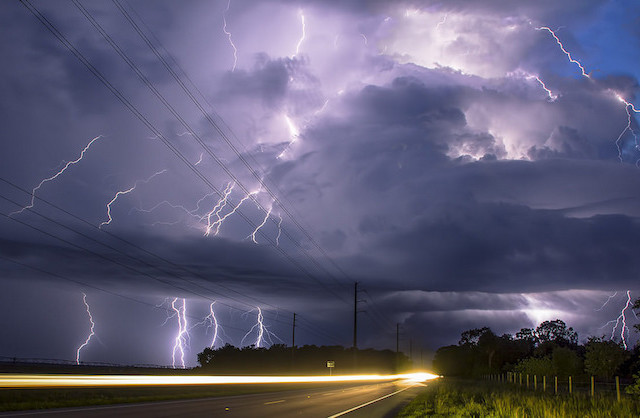
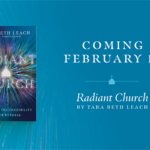
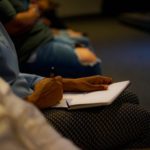

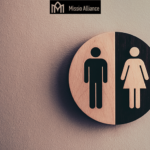
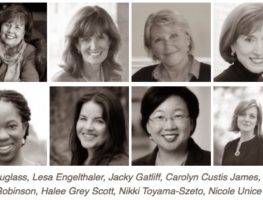
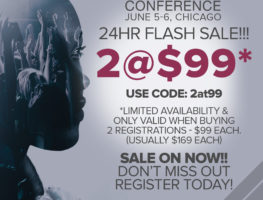
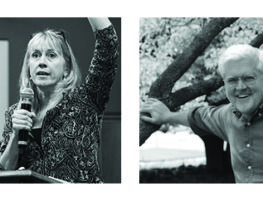


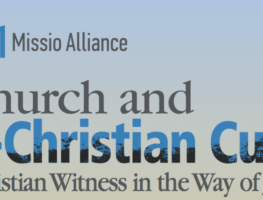

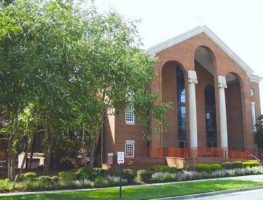
Missio Alliance Comment Policy
The Missio Alliance Writing Collectives exist as a ministry of writing to resource theological practitioners for mission. From our Leading Voices to our regular Writing Team and those invited to publish with us as Community Voices, we are creating a space for thoughtful engagement of critical issues and questions facing the North American Church in God’s mission. This sort of thoughtful engagement is something that we seek to engender not only in our publishing, but in conversations that unfold as a result in the comment section of our articles.
Unfortunately, because of the relational distance introduced by online communication, “thoughtful engagement” and “comment sections” seldom go hand in hand. At the same time, censorship of comments by those who disagree with points made by authors, whose anger or limited perspective taints their words, or who simply feel the need to express their own opinion on a topic without any meaningful engagement with the article or comment in question can mask an important window into the true state of Christian discourse. As such, Missio Alliance sets forth the following suggestions for those who wish to engage in conversation around our writing:
1. Seek to understand the author’s intent.
If you disagree with something the an author said, consider framing your response as, “I hear you as saying _________. Am I understanding you correctly? If so, here’s why I disagree. _____________.
2. Seek to make your own voice heard.
We deeply desire and value the voice and perspective of our readers. However you may react to an article we publish or a fellow commenter, we encourage you to set forth that reaction is the most constructive way possible. Use your voice and perspective to move conversation forward rather than shut it down.
3. Share your story.
One of our favorite tenants is that “an enemy is someone whose story we haven’t heard.” Very often disagreements and rants are the result of people talking past rather than to one another. Everyone’s perspective is intimately bound up with their own stories – their contexts and experiences. We encourage you to couch your comments in whatever aspect of your own story might help others understand where you are coming from.
In view of those suggestions for shaping conversation on our site and in an effort to curate a hospitable space of open conversation, Missio Alliance may delete comments and/or ban users who show no regard for constructive engagement, especially those whose comments are easily construed as trolling, threatening, or abusive.